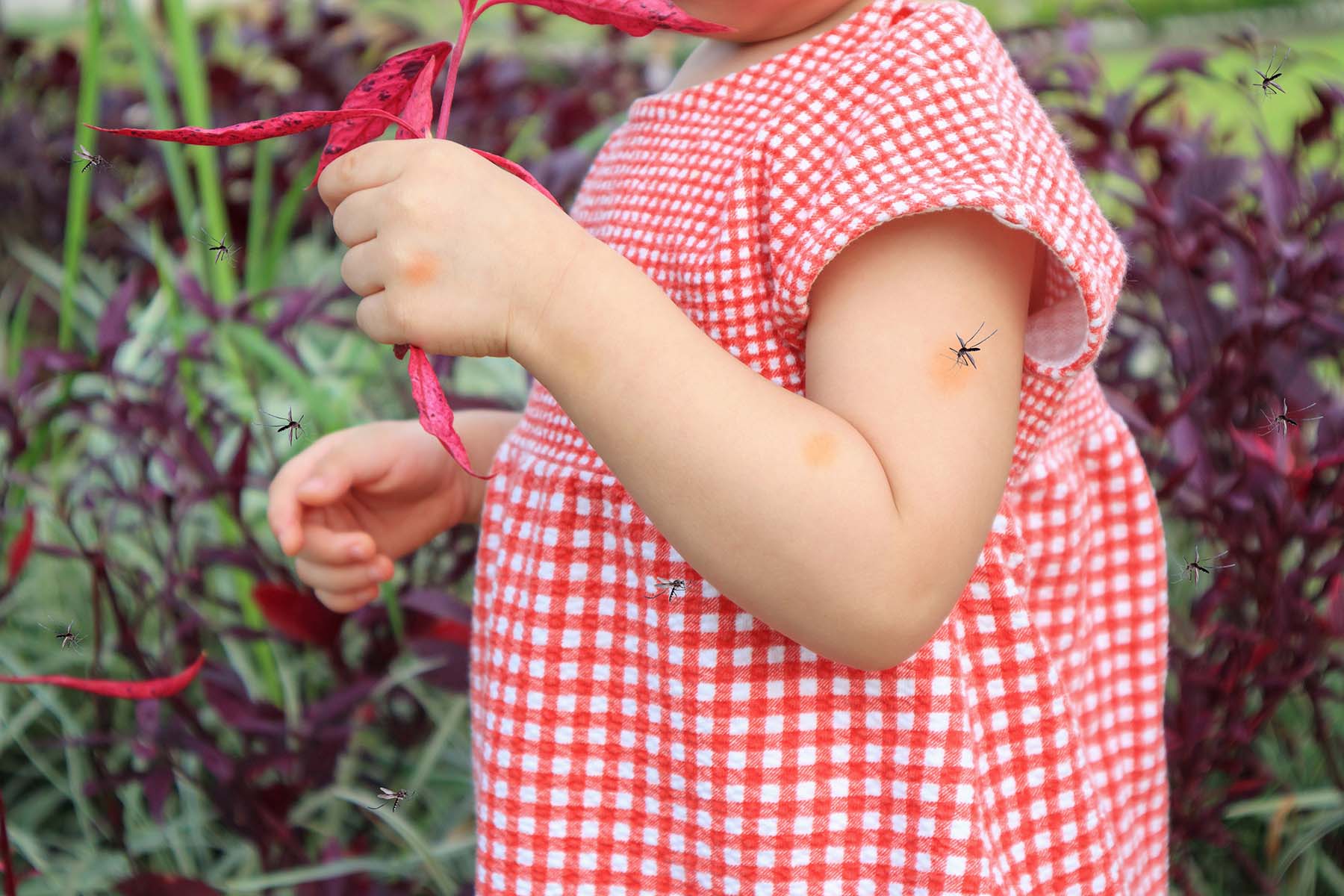Prevent Mosquito and Tick Bites With These Tips

Mosquitoes are fast, hearty and annoying. Ticks cling to the skin like glue.
Protect yourself against mosquitoes:
- Make insect repellent your BFF. Dr. Paola Lichtenberger, an infectious disease expert with the University of Miami Health System, says only EPA-registered repellants with at least 20 percent DEET are effective. Lemon eucalyptus oil also keeps the skeeters away, as does picardin.
“There’s a lot of stuff around, but there’s nothing in the literature that says those other things work,” she says. “I stick to what I know has been proven effective.”
Another word of caution: Babies younger than 2 months old should NOT wear repellent. Cover them or keep them indoors. Also, children under 3 should not use products containing oil of lemon eucalyptus (OLE) or para-menthane-diol (PMD). And when applying repellent on a child, make sure not to spray hands or cuts and avoid areas around the mouth and eyes. It’s better for the adult to spray the repellent on her hands and then apply to a child’s face. - Screen your windows or repair those screens that have tears. If you’re staying in a place without screens, ask for a mosquito net for your bed.
- Cover up. Long sleeves and long pants may be hot in the summer, but they provide excellent barrier to bites. To go the extra mile: if you’re spending time in areas that are known for infestation (mangroves, for instance, and swampy-marshy places), treat your clothes with permethrin.
- Throw out any standing water from pots, planters, buckets or assorted containers left around the home. Aedes aegypti , the mosquito that causes Zika as well as other diseases, needs only a teaspoon of water to lay eggs.
- If you have a pond or bromeliads and other water-collecting plants in the garden, consider using a larvicide.
Protect yourself against ticks:
- As with mosquitoes, use repellent on exposed skin. As for clothing and gear, including camping tents, treat with permethrin.
- Do a complete body check, from head to toe, including hair, to spot any ticks when coming inside, particularly after hiking or spending any time in the woods. After doing this, shower to make sure no insect has escaped your inspection.
- Check your pets and equipment for ticks, too. They can come in on these transports and then jump onto humans.
- When hiking, stick to trails and don’t wander deep into the woods. Better yet, avoid wooded places and areas with high grass and leaf litter.
- Use hot water in the washer and high heat in the dryer. This will finish off any ticks that may still be clinging to your clothes.
- If you find a tick, immediately pull it from your skin using clean tweezers. The CDC recommends grasping the tick as close to the skin as possible and then pulling upward with steady, even pressure. Don’t twist or jerk. If the mouth parts remain in the skin, continue removing it with tweezers. Then clean the bite area and your hands with alcohol, or iodine scrub or soap.
- Do not crush a tick with your nail or finger. Kill it by flushing down the toilet or submerging it in alcohol.
- If you develop a rash or fever within weeks of removing a tick, visit your doctor with information on your bite and where you likely got bitten.
There are no miracle cures for dealing with bug bites in general. “All you can do is ease the itching and avoid infection,” Dr. Lichtenberger says. “It’s a matter of controlling the discomfort and knowing that the symptoms will go away in a couple of days.”
She suggests using a small dab of topical cortisone. If the itching is more than you can endure or you show signs of a mild reaction, use Benadryl. Bug bites, however, can become infected. If the lesion expands, if it is draining or has pus and you’re feeling feverish, go see a doctor.

In Their Words
Ana Veciana-Suarez, Guest Contributor
Ana is a regular contributor to the University of Miami Health System. She is a renowned journalist and author, who has worked at The Miami Herald, The Miami News and The Palm Beach Post. Visit her website at anavecianasuarez.com or follow @AnaVeciana on Twitter.
Tags: Ana Veciana Suarez, bug bites, Dr. Paola Lichtenberger, Lyme disease, mosquitos, ticks
